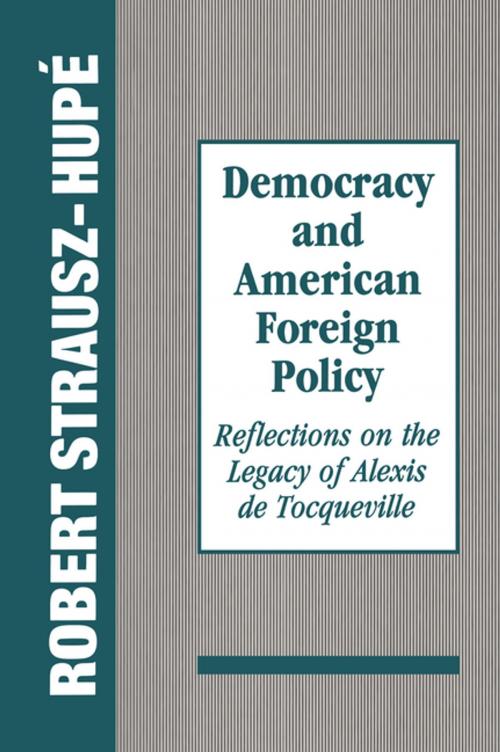Democracy and American Foreign Policy
Reflections on the Legacy of Tocqueville
Nonfiction, Social & Cultural Studies, Political Science, International, International Relations| Author: | Robert Strausz-Hupe | ISBN: | 9781351293983 |
| Publisher: | Taylor and Francis | Publication: | January 18, 2018 |
| Imprint: | Routledge | Language: | English |
| Author: | Robert Strausz-Hupe |
| ISBN: | 9781351293983 |
| Publisher: | Taylor and Francis |
| Publication: | January 18, 2018 |
| Imprint: | Routledge |
| Language: | English |
Since World War I, the United States has pursued the defense of Western civilization as a critical element of its own national interest. In his provocative reconsideration of that goal, Robert Strausz-Hupe asks whether the American people can still agree upon and adopt foreign policies consistently devoted to that end. He specifically examines popular and paradoxical attitudes that often undermine Washington's ability to defend American and Western interests, attitudes towards society and the state, politics and government, instruments of foreign policy and the people who wield them.
As the backdrop for his analysis, Strausz-Hupe employs the wisdom of Alexis de Tocqueville's Democracy in America, reiterating Tocqueville's finding that the driving force of American life is its passion for equality and democracy. To this insight, Strausz-Hupe adds another: When one realizes that domestic politics is the driving force behind foreign policy, one understands why "the foreign policy of the United States cannot be other than the defense of democracy everywhere." Unlike some analysts, however, Strausz-Hupe believes that this proposition states only the problem for American statesmen not the answer. The answer, Strausz-Hupe concludes, lies in a universal federation of democratic states.
In an appreciative foreword that examines the evolution of Strausz-Hupe thought, Walter A. McDougall demonstrates that this idealistic vision of a democratic world-state has been the unifying thread in Strausz-Hupe's intellectual career, not the calculating Realpolitik so often attributed to him.
Democracy and American Foreign Policy will be of central importance to international relations specialists, policymakers, political scientists, and students of political philosophy. Its chapters include "Tocqueville and Nationalism"; "Tocqueville and Marx"; "The Hypocrisies of Egalitarianism"; "Foreign Policy and Interest Groups"; and "Isolationism and the New World Order."
Since World War I, the United States has pursued the defense of Western civilization as a critical element of its own national interest. In his provocative reconsideration of that goal, Robert Strausz-Hupe asks whether the American people can still agree upon and adopt foreign policies consistently devoted to that end. He specifically examines popular and paradoxical attitudes that often undermine Washington's ability to defend American and Western interests, attitudes towards society and the state, politics and government, instruments of foreign policy and the people who wield them.
As the backdrop for his analysis, Strausz-Hupe employs the wisdom of Alexis de Tocqueville's Democracy in America, reiterating Tocqueville's finding that the driving force of American life is its passion for equality and democracy. To this insight, Strausz-Hupe adds another: When one realizes that domestic politics is the driving force behind foreign policy, one understands why "the foreign policy of the United States cannot be other than the defense of democracy everywhere." Unlike some analysts, however, Strausz-Hupe believes that this proposition states only the problem for American statesmen not the answer. The answer, Strausz-Hupe concludes, lies in a universal federation of democratic states.
In an appreciative foreword that examines the evolution of Strausz-Hupe thought, Walter A. McDougall demonstrates that this idealistic vision of a democratic world-state has been the unifying thread in Strausz-Hupe's intellectual career, not the calculating Realpolitik so often attributed to him.
Democracy and American Foreign Policy will be of central importance to international relations specialists, policymakers, political scientists, and students of political philosophy. Its chapters include "Tocqueville and Nationalism"; "Tocqueville and Marx"; "The Hypocrisies of Egalitarianism"; "Foreign Policy and Interest Groups"; and "Isolationism and the New World Order."















